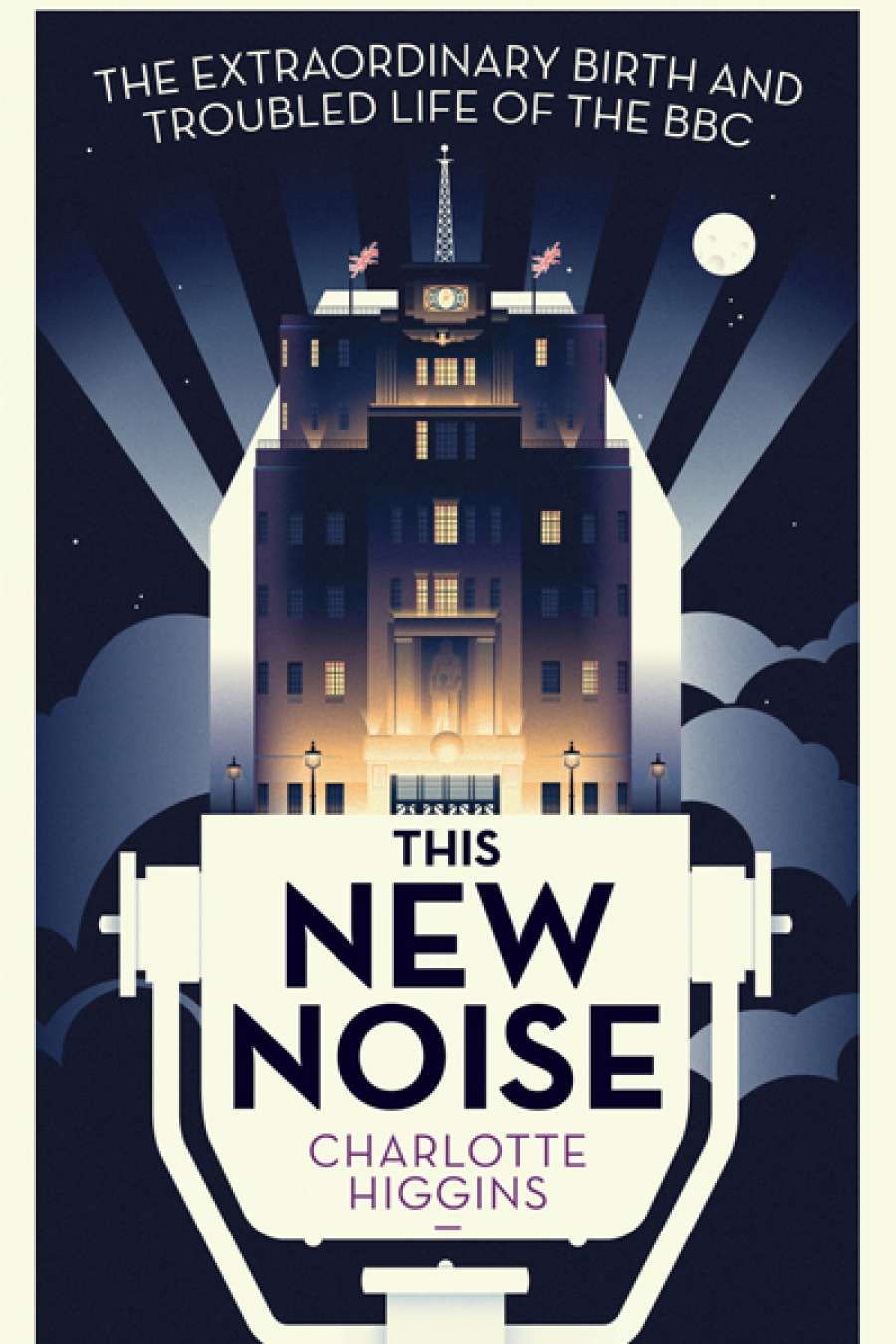
- Free Article: No
- Contents Category: Media
- Custom Article Title: Andy Lloyd James reviews 'This New Noise' by Charlotte Higgins
- Book 1 Title: This New Noise
- Book 1 Subtitle: The Extraordinary Birth and troubled life of the BBC
- Book 1 Biblio: Guardian Books/Faber, $29.99 pb, 288 pp, 9781783350728
For both the BBC and the ABC, the cornerstone words are quality, independence, impartiality, balance, and comprehensiveness. The key purposes for both are to provide information, entertainment, and education. As one BBC director general described it, public broadcasting 'treats its audiences as citizens and not as consumers' and provides for them impartial programming and, particularly, a completely independent news and current affairs group.
The single largest difference between the two broadcasters is that for its first three decades the BBC had no commercial competitors. It was a monopoly: if you wanted to hear or see something on radio or television in Great Britain, the BBC was your only option. That's why it is so deeply embedded in the heart and soul of its citizens. Change did not come until the mid-1950s. By contrast, the ABC was born after the arrival of commercial radio and commercial television and had to fight for audience from its opening days. The key manifestation of this difference was that the BBC was funded to produce all of its programming itself, whereas the ABC was always expected to buy-in a lot of television programming (far cheaper than making it) and was thus badly underfunded from the start.
'She has achieved what the BBC has done every day for almost ninety years: enriched public discussion'
Apart from that, they shared many of the issues common to public media: burgeoning management, increasing editorial control, over-attention to ratings, and, as a result, greater risk-aversion. Most noticeably, they have both had fractious relationships with governments of the day, generally focusing on either perceived bias or funding. Now public broadcasters are faced with a growing number of commercial and pay TV channels, and with the arrival of YouTube, Google, Apple, Netflix, Stan, Facebook, Twitter, Instagram, podcasts, and more, delivered when and where the audience wants – most of them cashed up, some are much richer than the ABC and the BBC.
 Charlotte Higgins
Charlotte Higgins
Will those cornerstone words listed above survive that level of challenge or will commercial and political forces drive them to the margins? So far we have seen little from ABC and SBS as to their plans: lots of talk about technology, but little about content. The federal government has said nothing either. Yet the battle is already on, and the public broadcasters should be leading the charge.
The very nature of digital technology means that there is a new keyword for public broadcasters to add to their list: participation. Their challenges will be to open their doors to the whole population; to become truly useful to every citizen at every stage of life; to provide them with every educational and creative opportunity to extend themselves on all ABC/SBS channels, be they on-air or online or elsewhere in the burgeoning cyberspace – in other words, to put the public into public broadcasting.
Above all, what John Reith saw in public broadcasting was 'an equalising, democratic force' constantly striving to create a better life for citizens. Australia can fulfil that aim. This New Noise is a reminder of how much human beings can achieve creatively, how much sheer will and courage is required, and how much trust is needed to vindicate Reith's original vision.
'The whole service ... may be taken as the expression of a new and better relationship between man and man,' John Reith wrote in 1924. As Charlotte Higgins notes, what 'a wonderfully hopeful thing to say'.


Comments powered by CComment